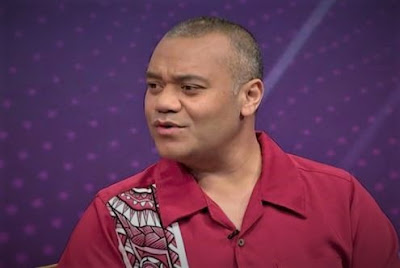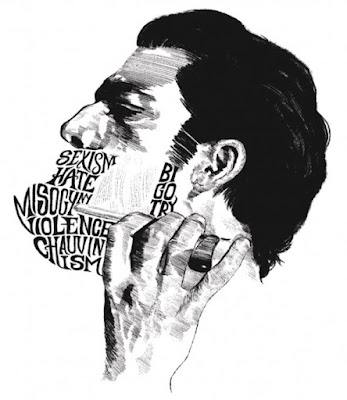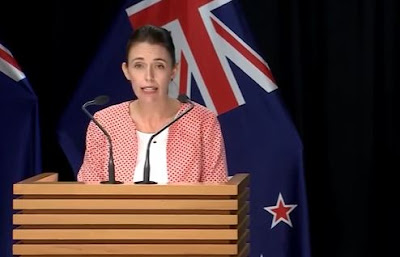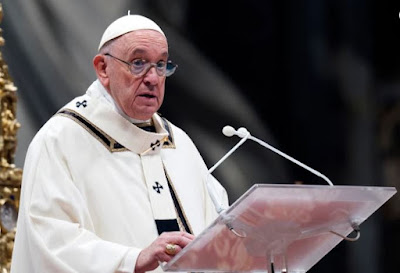WHAT IS LABOUR going to do about Efeso Collins? His decision to offer himself as a candidate in this year’s Auckland mayoral election places the party in a very difficult position. If Labour backs him, he risks dragging it in a direction it doesn’t want to go. If it sacks him, he just might win anyway.
Collins is a larger than life politician of considerable eloquence and unsettling (for Labour’s top brass) independence of mind. Even worse, he is a politician unafraid to take a principled stand – even at the cost of angering his senior colleagues. Born and raised in Otara, the youngest son of Samoan immigrants, Collins possesses that rare, but highly prized, quality of personal authenticity. For the Pasifika community, he’s the Man.
In other words, Collins promises to be the sort of candidate who can generate genuine excitement among an electorate that usually dismisses local government elections as too boring to bother with. That said, you might think that Labour’s top brass would have fallen to their knees saying “Thank you God for sending us a candidate straight out of Central Casting!” But they’re didn’t. Why? Because Collins makes them look like the stale, white-bread, don’t-rock-the-boat politicians that they truly are – and they hate him for it.
Foolishly, Labour’s top brass have allowed their animosity towards Collins to cloud their strategic political judgement. Without first securing a rock-solid guarantee from Collins that he was not going to run, they started briefing the Auckland news media about the man they had already fixed upon as Phil Goff’s replacement. (That Phil Goff had fixed upon the same man made it all too easy!)
North Shore councillor, Richard Hill, was presented as the man upon whom Labour’s hands had been laid. Technocratic, socially liberal, a disciple of the gospel of “governance”, and a bona fide policy wonk, Hill was shopped around to local government journalists as Labour’s heir presumptive to the mayoral chains.
And then Collins announced – on the woke website The Spinoff, no less. In a long interview with Spinoff editor, Toby Manhire, Collins laid out his pitch for “the second most powerful job in New Zealand”.
It was a damn good pitch, confirming just how adroit Collins has become at presenting himself as both a genuine reformer and a moral conservative – the perfect South Auckland combo, but also one likely to kindle genuine interest among a great many more Aucklanders than simply the city’s Pasifika population. Receiving the near instant endorsement of the caustic conservative commentator, Ben Thomas, was proof of Collins considerable cross-over appeal.
The Spinoff also did Collins the enormous favour of putting up a video produced by his South Auckland supporters for his first run at local office. This is the sort of thing that Labour’s pathologically cautious apparatchiks just can’t do. Jacinda can – which is why Labour is where it is today. Do what? Make her party look cool-as. What The Spinoff allowed its huge audience of young, politically engaged readers to see and hear was that, way before Jacinda mastered this style of communication, Efeso’s campaign workers had nailed it to the wall.
This is Labour’s problem. It has set its heart on a Hilary Clinton, who can’t win, and is now facing a Barack Obama, who can.
What to do?
The most obvious solution – which Collins admits to lobbying for hard over many months, to no avail – is an open process of democratic selection. A “primary”, if you will, like those used by the Americans to determine their parties’ choices.
Labour Party members, across the whole of Auckland City, would be asked to vote for their preferred candidate. Simple? Effective? You might think so. But, Labour’s top brass hate the whole idea of membership elections. (Mention the name of David Cunliffe and watch them turn pale!) The only election process they seem to favour is something along the lines of the College of Cardinals choosing a Pope. An entirely mysterious process, conducted behind locked doors, comprehensible only to God.
Besides, even if the Labour top brass could be persuaded to democratise the selection process, they’d still be faced with the problem that Collins would, almost certainly, win it. And if he did, he would likely prove even less amenable to the guidance of Labour’s top brass than he has as a humble councillor. Like his last-minute refusal to vote for Goff’s regional fuel tax, arguing convincingly that it would disproportionately impact his Pasifika and Māori constituents who depend on their old, gas-guzzling jalopies to get them to work on time.
Not the sort of argument that cut much ice with North Shore Councillor Richard Hill – who loyally supported Mayor Goff’s regressive policy.
So, what will Labour do? My best guess is they will put Hills up as an “independent” candidate and spend the whole campaign casting Collins in the role of “spoiler” and “splitter” of the “centre-left” vote. If that fails to produce the desired effect in the polls, then Labour’s little online helpers will remind voters that Collin’s opposed gay marriage and has personal moral objections to abortion. Thoroughly distancing themselves from such scurrilous tactics, Labour will, nevertheless, be privately delighted to see their allies in the news media amplify these attempts to cancel Collins’ campaign.
Will it work? Doubtful. Wokeness is an acquired socio-political taste – at best. Depending on how Collins responds to these attacks, his standing with the average, non-woke, voter might even be enhanced. A brown, working-class, family man, under attack by the worst elements of left-wing “cancel culture”. What’s not to like?
Then, of course, there’s the Right. Should its preferred mayoral candidate/s fail to fire, and the race between Collins and Hills come down to the wire, conservative Aucklanders might just decide to inflict a crushing blow upon Labour in Auckland by throwing their weight behind Collins – thereby ensuring his victory, as well as giving themselves a not insignificant role in the election of Auckland’s first Pasifika mayor.
Wildly optimistic? Maybe. But just read this extract from Collins interview with The Spinoff before writing-off the chances of the Right swinging in behind him:
“As far as reaching across the left-right aisle is concerned, Collins points to his working relationship with Desley Simpson, the National-aligned councillor for Ōrākei. “I made a deliberate choice to sit next to Desley. And that is based on the fact that I represent the poorest ward in the city, and she represents the wealthiest, and we can sit there while other discussions are going on and thrash things out,” he says. “And what that has done has allowed me to understand how people in her area see the world, the same way I can invite her to understand how our people in this part of Auckland see the world.” During last year’s Covid lockdown, that resulted in “one of those beautiful things”, he says, when “she turned up with trailer loads of goods, which had women’s sanitary products, food, furniture, and she brought it to the Māngere budgeting service – trailer loads of stuff … She rang me and said: “Look, I’ve got these people who said they’ve seen you on TV, they know you’re really keen to get some services and products out to your community. Let’s make the link.”
It’s stories like that which make Efeso Collins such a formidable mayoral candidate. Raised on Bible stories, he knows how to craft a memorable parable.
Labour’s problem, as an old mate of mine once observed of another ideologically rigid organisation, is that: “They’d rather keep control of the losing side than lose control of the winning side.” Well, faced with Efeso Collins, the chances of Labour keeping control of the Auckland mayoralty strike me as slim. I think they’ll lose it.
And, frankly, that will be no bad thing.
This essay was originally posted on The Daily Blog of Friday, 28 January 2022.














